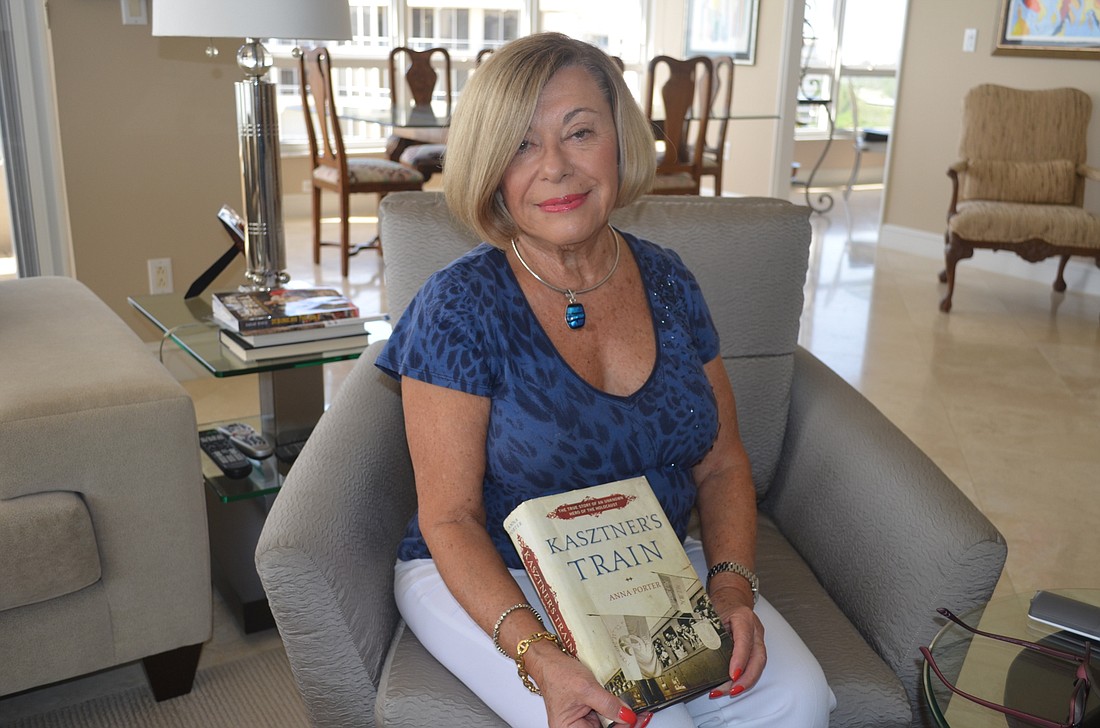- October 19, 2022
-
-
Loading

Loading

Rifka Glatz was only 6 years old when she was sent with her mother and brother to the Bergen-Belsen concentration camp in Lohheide, Germany during the Holocaust. Rudolf Kasztner, a Hungarian Jewish attorney, is credited with saving Glatz and 1,683 others. Glatz will speak July 8, at the Al Katz Center in Bradenton, when the organization screens the 2008 documentary "Killing Kasztner."
What was your experience during the Holocaust?
The war broke out in Europe in 1939. I was 2 years old. I’m from Hungary, and Hungary was Germany’s ally in the war, so they didn’t touch the country for a few years. My father was taken away in 1943 to a forced labor camp. He never came out. By the spring if 1944, deportation started in Hungary to Auschwitz. By that time, there were rumors they were killing the Jews. Rudolf Kasztner, a very brilliant lawyer and a very courageous man, had an idea that could save Jews. He came up with the exchange of Jews for trucks because they needed trucks. He originally wanted to help 1 million Jews, but he finally settled on 1,684. The train left with the idea it would go to Portugal or Spain. On the way, Adolf Eichmann, Hitler’s protégée, changed his mind, and instead of sending us to our destination, we went to the Bergen-Belsen concentration camp.
What was life like at Bergen-Belsen?
They divided us into males and females. Some were forced to work, some were not. We had four bunk beds stacked on top of one another. There were hundreds of us in a barrack, and they counted us several times a day to make sure no one escaped. You didn’t know if you were going to starve to death or be shot to death or leave. It was five months of being in horrendous circumstances. We were released in December of that year. Switzerland took us in. It was like going from hell to Cinderella’s palace at the hotel we stayed in.
Why wasn’t Kasztner seen as a hero at first?
After the war, everyone was shell-shocked and upset and didn’t want to talk about it. Some people claimed that Kasztner colluded with the Nazis. They wouldn’t allow enough witnesses at his trial, and he was found guilty with the sentence of “you sold your soul to the devil.” In 1957, he was shot and killed. He was later exonerated by the Supreme Court. He saved more Jews than any other Jew in the world. It’s a fact that can’t be denied. He was courageous. He saved my life.
What was your life like after the war?
As soon as the war was over in 1945, we moved to Israel. My mother wanted to go back to Hungary, but my uncle said no and that there’s nothing to go back to. We lived a modest life, but we were happy. We learned to be independent and proud of who we are. We learned to be kind and compassionate to each other. In spite of everything, we were taught to love.
Have you ever returned to Hungary?
In 1996, I returned to Hungary for the first and only time. I will never set foot in that country again. They have never admitted their complicity in the war and their complicity with Germany. I had to go back once because I wanted to see where I was from and where my family lived. It was a very important visit for me, but I wouldn’t go back there.
Why after more than 60 years after the Holocaust did you begin speaking out?
The movie “Killing Kasztner” came out all about Kasztner and what he did. When it was shown here, I said I would say a few words and talk about my experience. I feel I owe so much to the man who rescued me.
Why is it important for people to learn about the Holocaust?
I think it’s important because if you don’t know your history, it will be repeated again and again. People need to know of these atrocities. It’s very important they learn what happened. It’s a sad history, but it’s a history people must know about. These were families and children in the Holocaust who were taken. Why? What did they do to deserve this fate? So many families came home broken up. Even today, some people in the world are taught to hate. Look at the shooting at the church in South Carolina. It’s a complete lack of tolerance, and it’s hating and despising because of who someone is. Who gives them the right to judge?